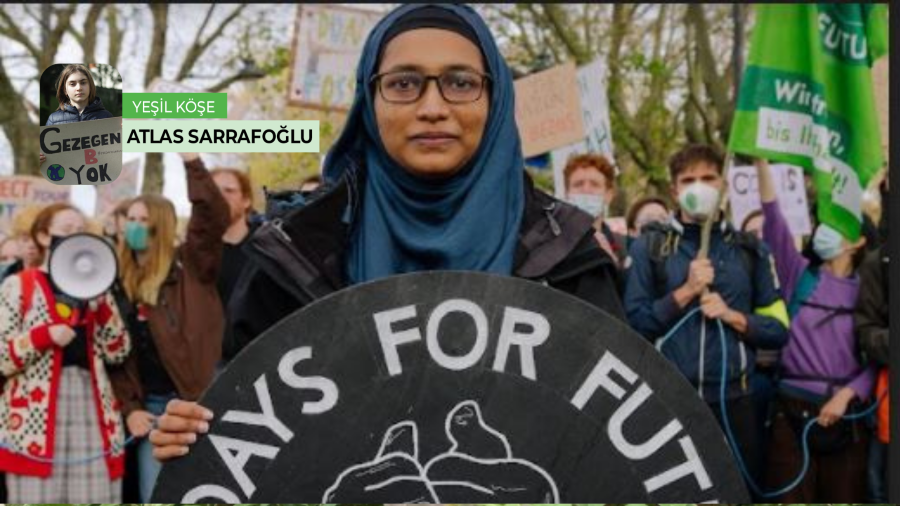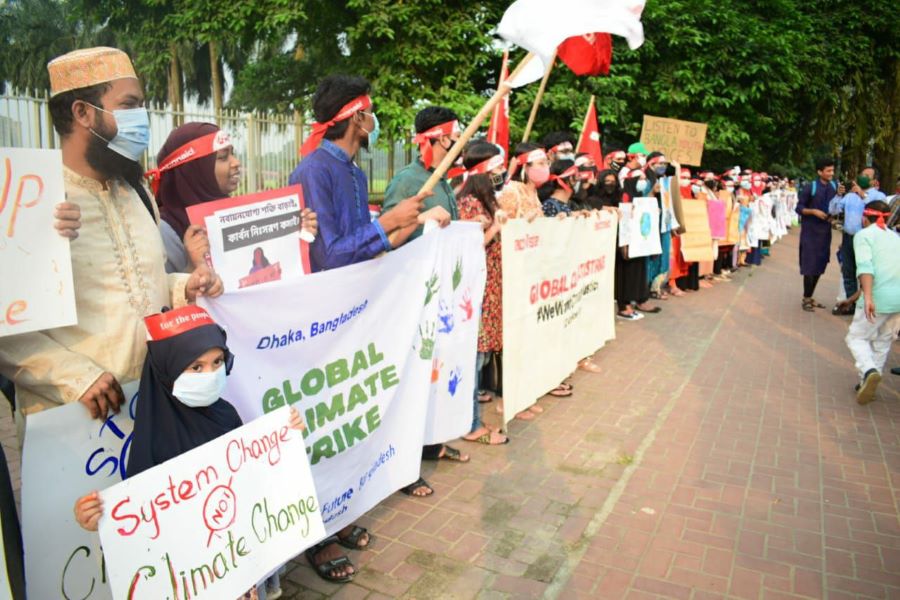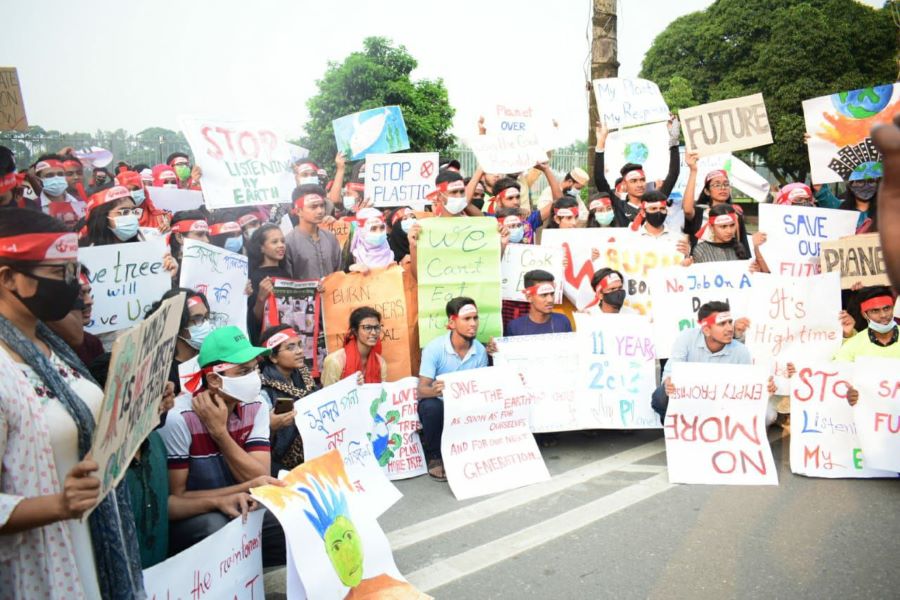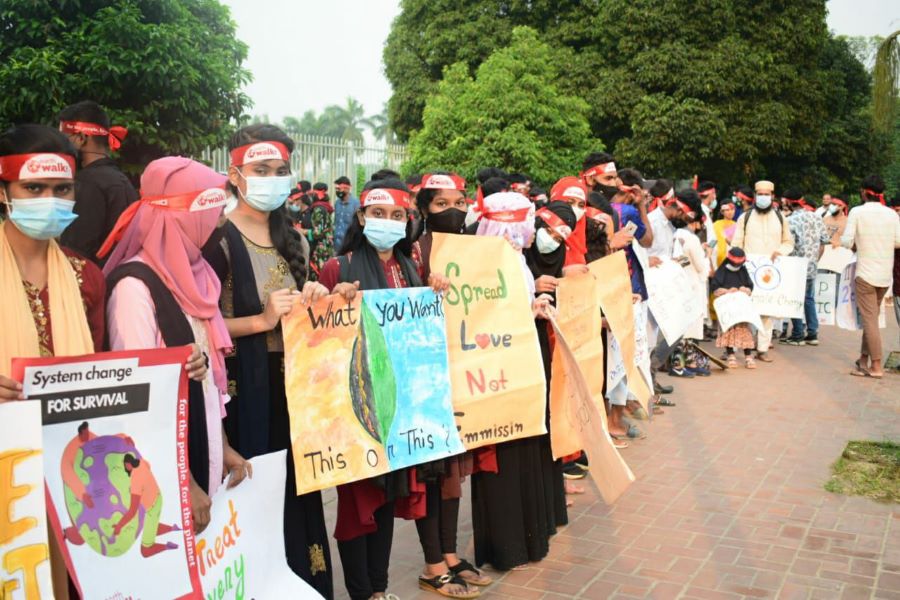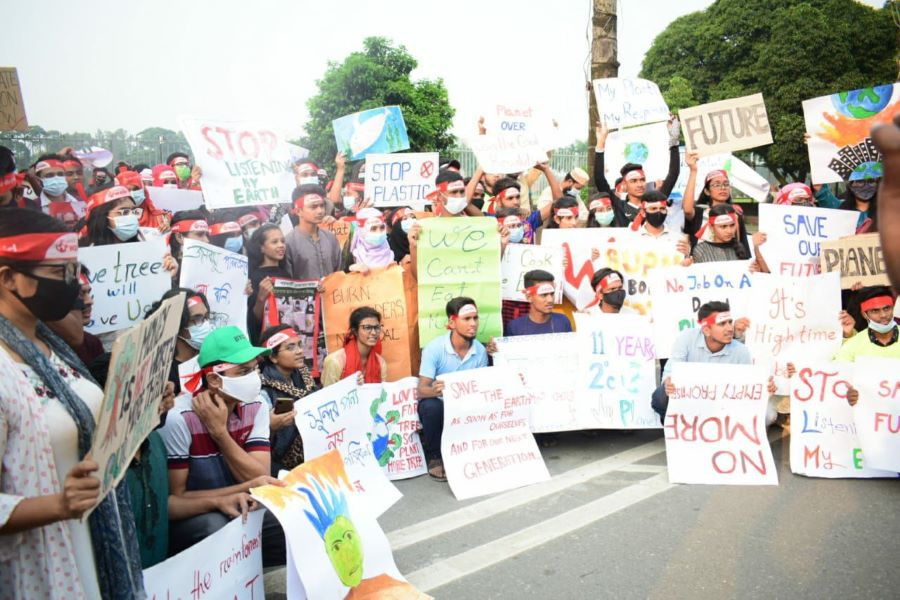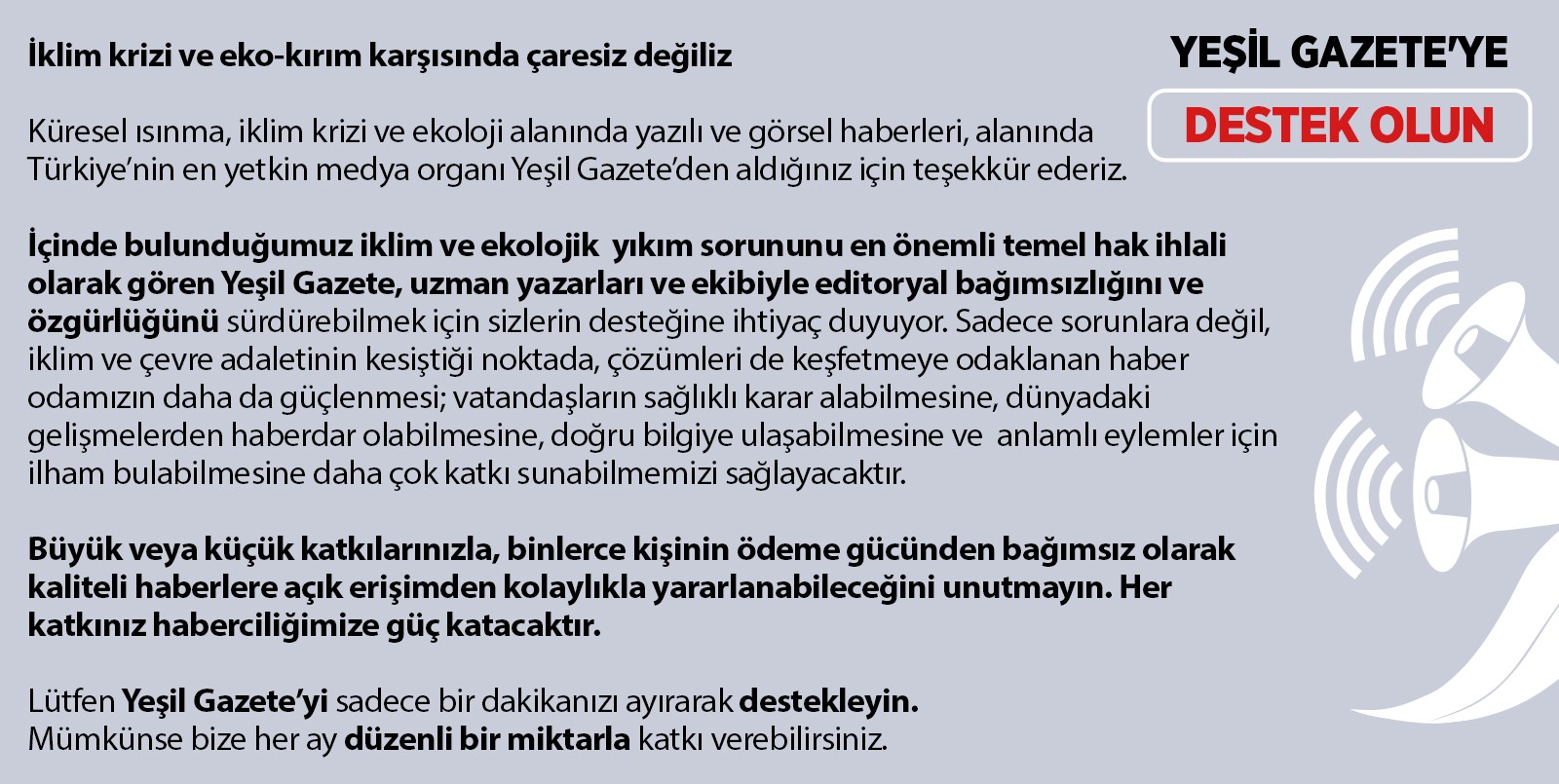Farzana Faruk Jhumu is a 23 year old climate activist from Dhaka, Bangladesh. She is also the co-founder of “Kathpencil”.
Atlas Sarrafoğlu: What is your personal story as a climate activist? How did you start and what is your position in general in the climate movement and what keeps you going?
Farzana Faruk: I started as a climate activist without even knowing. “Sidr”, one of the biggest cyclones in 2007 which made an impact but it never really made it to the headlines. Bangladesh is the only country in the world which has six seasons. The difference was so beautiful and significant when I was child, but now it is not as before, I was just looking for the reason why. When I met someone affected by the cyclone and migrated to my city, I was surprised to know, they didn’t get any help. Just wanted to know, because I wanted to teach the children who came to my city. They are climate migrants, but we can’t even call them refugees, as they are in their own country, they have the same right as I do. To teach them, I need to teach myself about the climate crisis, so I am involved with FFF. After meeting people from different countries, I realised, there is something bigger than climate crisis, climate injustice. We are the very countries exploited by the global north for their profit, whether using us as resources, or their interest hub. So I had to represent my people and my country as many in the emitter countries don’t even know.
I love to call myself a climate and social justice activist. I am mainly in charge of communication, external affairs for my local group. I also try to educate our people. and the frontline communities who are fighting way before me keeps me going.
How is the climate crisis affecting your everyday life?
I live in Dhaka, the capital city of Bangladesh. Due to the sudden monsoon shift happening, the rainy season is way longer than expected. So with the poor drainage system even with little rain, we had to be stuck with water. The heatwave is even more extreme and with 40 million people in a city, it makes our daily life almost impossible. Due to internal migration, lot of people have to leave their homes and come to cities, so the pollution increases a lot.Almost every 1 of 3 people have airborne disease due to air pollution.
If you had a platform to speak to the leaders of the world, what would you say to them?
We are creating one. Everyday, that’s what we stand for, cause we know they will not give us one platform. So, I want to say, we need climate reparation, not aid or pledges. When you are the emitter, you are oppressing us, why should we pay? You should pay the compensation. We are not paying the debt we had to get for the climate catastrophe you are causing. We don’t need your debate on whether we need soft language on a global climate pact.
"Being a climate activist is not a choice, it's a necessity."
On the occasion of #WorldChildrensDay, let's listen to these powerful words from @Fridays4future youth activist @FarzanaJhumu at #COP26. 👇👇👇 pic.twitter.com/1Ly1d8LkOT
— UNICEF Bangladesh (@UNICEFBD) November 19, 2021
‘Kills me inside to see the injustice towards us’
What specific climate crisis is the most important issue in your country? And also please tell us what does it mean to be a MAPA for you?
Bangladesh is a low land country. Coastal areas in Bangladesh are on the ‘front line’ of climate change, directly affected by storm surges, drainage congestion, and sea level rise. Our 10% land is directly affected by high tides. Due to climate change, we see more rainfall than ever before. In summer, the heatwave hits us.In the rainy season, heavy rainfall, the monsoon shift is making floods more irregular, also more cyclones come every year with more intensity. The land loss makes more people internally migrate to the city. But the city has limited resources, that’s why their life is getting worse. The salinity is everywhere in costral area. It kills biodiversity on an intense scale. Our city is polluted so airborne diseases are increasing.
Being a MAPA means seeing this suffering first hand. I am kind of privileged to not suffer everyday from all those sufferings but I have seen people and families fight with natural disasters, which is not so natural. Being a MAPA gives me strength to adapt to these catastrophes but also kills me inside to see the injustice towards us.
You attended COP26 last month. Why is COP26 important for you and what are your demands for the world leaders?
Bangladesh is leading the climate vulnerable forum as we are one of the countries most affected. But our voice is not heard on global platforms. We are not considered to have a solution to the climate crisis, even though my people know how to adapt with minimum resources for decades. My COP joining was important to let the people know what the real climate change looks like and how we need to address the problems. The media from the global north with much reach and opinion never represent the real problem and that’s why I had to go to COP.
‘We will not give up, we will save our future’
We know that Bangladesh is facing the worst impacts of the climate crisis. Can you tell us how your government is handling it? Are you in contact with decision makers for climate issues? What are your demands for them?
Government of our country is actually trying to handle responsibility. Our climate policies are way better than many countries who call themselves climate leaders. We are currently leading the climate vulnerable forum(CVF). Being part of the least developed countries, we are trying to cope up with other neighbouring countries. Even though we have to pay the climate debt every year we are still supporting our developing projects. We had contacted our environment ministry to represent the youth voice. Obviously there are issues within our government. Our ministry has some shortcomings when they have to work together for efficient work. Also, our government is currently supporting some coal plants which is not good for us. Corruption is one of our biggest problems for which the adaptation projects are never perfect. So our demand is to be transparent about the government officials. We also lack planning for the marginalized people.
How are you coping with school alongside climate activism and how do you ground yourself?
It’s a tough question. There is always something new I need to know about when it’s about climate change. I not only engage with climate activism but also engage with teaching underprivileged children in my locality. So I had to give time for our little school. Also, with activism, time difference sometimes overwhelms me. But I think friends play a major role when it comes to coping up with this. The international community I meet though FFF is so welcoming. We always check on each other and talk about mental health. When we have study pressure, they help update me with things so that I don’t need to check out everything. One more thing that is more stressful than workload is eco-anxiety. Whenever a report, a study or any big conference happens, eco-anxiety hits hard. That slows down all-activism, study, and self care. I think, looking up to the people of my country who had to fight despite all the difficulties, helps me to gain the energy again.
What do you think the future holds for us? Do you think we will be able to tackle this crisis? What is your projection of 2030?
By 2050, we will lose one fifth of our land, even if the current global temperature stays the same as the world leaders made targets for 2050. So I almost don’t see the future, but then again, I can’t lose hope. I know, if I don’t ask for my rights, they will not give me. That’s how life in MAPA is! Moreover, our frontline communities still keep holding on, so we also will not give up. And when we know we can, we will save our future. And when we already know what our power is, we will not be driven by the system.
I believe we have the solution as we can see that within our local communities. So, when we have the solutions, we can tackle the crisis, But before that we need to be more active to decolonize the system. Within this system, we can’t get what is good for all.
By 2030, I see a lot more empty promises, but also a more strong global community to ask and create transparency.

